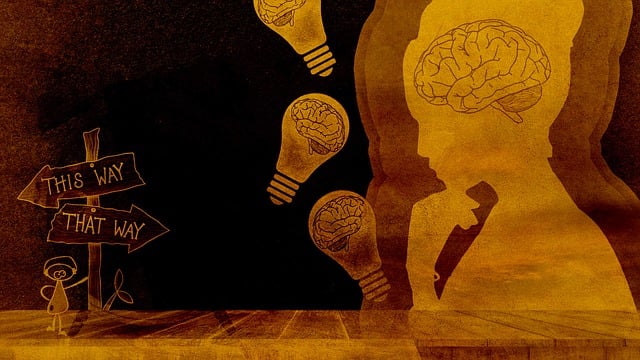Broomfield Online Therapy is revolutionizing mental health support by addressing the stigma surrounding mental illness through accessible digital services. They offer personalized treatment plans, educational initiatives, and trauma support, normalizing conversations about mental wellness and empowering individuals to manage their well-being confidentially from anywhere. By breaking down geographical barriers and societal stereotypes, Broomfield Online Therapy fosters inclusivity and long-lasting mental resilience, making therapy convenient and encouraging those hesitant to seek help due to fear or embarrassment.
Mental illness stigma remains a significant barrier to those seeking help, but there are promising efforts to reduce it. This article explores several effective strategies, including understanding the profound impact of stigma on mental health seekers and examining innovative solutions like Broomfield Online Therapy. We delve into educational initiatives that combat stereotypes, community engagement fostering supportive environments, and how these combined approaches are revolutionizing mental healthcare access.
- Understanding Stigma: Its Impact on Mental Health Seekers
- Broomfield Online Therapy: A Modern Approach to Overcoming Stigma
- Educational Initiatives: Breaking Down Stereotypes and Misconceptions
- Community Engagement: Fostering Supportive Environments for Recovery
Understanding Stigma: Its Impact on Mental Health Seekers

Stigma surrounding mental illness can have a profound impact on individuals seeking help. It often acts as a barrier, creating an atmosphere of fear and shame that deters people from reaching out for support. Many struggle to identify or acknowledge their symptoms, let alone seek professional assistance, due to the societal labels and misconceptions attached to mental health issues. This hidden burden can lead to prolonged suffering and worsened conditions.
Understanding stigma is a crucial step towards reduction efforts. Broomfield Online Therapy recognizes this challenge and aims to bridge the gap by offering accessible therapy services. By normalizing conversations about mental wellness, they encourage individuals to embrace self-care practices and build confidence in managing their well-being. Moreover, trauma support services play a vital role in addressing the root causes of stigma, ensuring that those who have experienced traumatic events receive specialized care and foster healthier coping mechanisms.
Broomfield Online Therapy: A Modern Approach to Overcoming Stigma

Broomfield Online Therapy is a revolutionary approach to addressing mental health issues and reducing the stigma surrounding them. In today’s digital age, online therapy platforms like Broomfield provide accessible and convenient support for individuals seeking help. This modern method removes geographical barriers, allowing people from diverse areas to connect with licensed therapists, thus fostering inclusivity. By offering confidential sessions via video or text, it ensures a safe space for clients to openly discuss their struggles without the fear of judgment often associated with traditional therapy settings.
The focus on digital accessibility extends beyond convenience; it empowers individuals to take control of their mental well-being. Through interactive tools and personalized treatment plans, Broomfield Online Therapy encourages positive thinking and self-care practices. By incorporating confidence-boosting strategies and leveraging mind over matter principles, clients can develop coping mechanisms tailored to their unique needs. This holistic approach not only aids in overcoming stigma but also fosters long-lasting mental resilience.
Educational Initiatives: Breaking Down Stereotypes and Misconceptions

Educational initiatives play a pivotal role in reducing the stigma surrounding mental illness by aiming to break down stereotypes and misconceptions prevalent in society. Broomfield Online Therapy, for instance, leverages digital platforms to offer accessible therapy sessions, challenging the notion that seeking help is a sign of weakness or something to be ashamed of. These programs often focus on promoting mental health literacy, educating individuals about various conditions like anxiety and burnout prevention, and providing practical strategies for managing symptoms.
Mental Health Education Programs Design should be inclusive and tailored to diverse audiences, addressing common myths head-on. By fostering open conversations and sharing personal stories, these initiatives can humanize mental illness, encouraging empathy and understanding. Such efforts contribute significantly to creating a supportive environment where individuals feel comfortable discussing their struggles and seeking appropriate support, ultimately leading to improved access to quality care for those in need of Broomfield Online Therapy or other mental health services.
Community Engagement: Fostering Supportive Environments for Recovery

In the fight against mental illness stigma, community engagement plays a pivotal role in fostering supportive environments conducive to recovery. Broomfield Online Therapy leverages digital platforms to connect individuals seeking support with qualified professionals, breaking down geographical barriers and making therapy more accessible. This approach not only ensures convenience but also encourages those who might be hesitant to seek help due to fear or embarrassment, as they can now participate from the comfort of their homes.
Mindfulness Meditation and Emotional Well-being Promotion Techniques have been integrated into many therapeutic practices, offering clients tools to manage stress and improve mood. By fostering a sense of community through group sessions and support groups, Broomfield Online Therapy further enhances the recovery process. These initiatives contribute to a more accepting society where individuals with mental health challenges feel empowered to live open, fulfilling lives.
Mental illness stigma is a pervasive barrier to treatment, yet through innovative solutions like Broomfield Online Therapy, educational initiatives, and community engagement, we can foster supportive environments that encourage healing. By understanding the profound impact of stigma on those seeking help and implementing strategies to break down stereotypes, we can create a more inclusive society where individuals feel comfortable pursuing therapy and embracing recovery.














